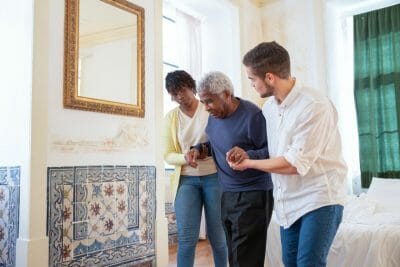Amyotrophic Lateral Sclerosis (more commonly known as ALS or Lou Gehrig’s disease) is a neurodegenerative disease that causes the loss of motor neurons that control voluntary muscles. It specifically targets the brain and spinal cord.
There are no known causes for 90-95% of ALS cases, these are called Sporadic ALS. However, up to 10% have been found to be genetic (Familial ALS) caused by a defect in the C9ORF72 gene or a mutation in the SOD1 gene.
From diagnosis, the life expectancy for something with ALS is around 2-4 years. Around 10% of cases have survived over 10 years. One notable case is Stephen Hawking who survived 55 years after diagnosis.
Symptoms
Here are some of the common symptoms of ALS:
- Weakened leg muscles – tripping, falling, and difficulty walking
- Weakened hand muscles – difficulty gripping and increased clumsiness
- Slurred or slow speech
- Spontaneous laughing or crying
- Difficulty swallowing or breathing
- Extreme changes in behavior
- Muscle cramps or spasms
ALS is typically hard to diagnose because these symptoms are shared with other neurological diseases. For more information visit https://www.mybiosource.com/als_amyotrophic_lateral_sclerosis.
There is unfortunately no cure for ALS. Instead, treatment is mainly focusing on helping the symptoms of it and providing support. Below are 5 ways that ALS is treated in order to improve life and prolong survival.
How Is It Diagnosed
While it is hard to diagnose ALS, it is not impossible. There are a few methods used to get an official diagnosis. Some of them are:
- Electromyogram – analyzes the activity of the muscles via electricity
- Magnetic Resonance Imaging (MRI) – scans the brain and spine for any anomalies
- Spinal tap – to get a sample of spinal fluid for testing
- Blood and urine tests – this is to rule out any other diagnosis
Medication
The main medication for ALS is Riluzole and Edaravone. Riluzole helps reduce damage to motor nerves and Edaravone helps to prevent damage from toxic substances. Each of these can help to increase life expectancy and reduce the decline in muscle functionality.
You are able to get other medications like diazepam and baclofen to help with symptoms like pain and fatigue.
Breathing Support
The main cause of death in ALS is respiratory failure. As your muscles fail, your breathing will get more difficult. Surgery may be needed in the later stages of ALS to open airways and connect respiratory devices. Doctors will consistently test your breathing to make sure you are getting the support needed.
Breathing problems may also lead to issues with swallowing or choking. When this happens a feeding tube may need to be used to provide the body with nutrients. Due to issues with swallowing, trihexyphenidyl and amitriptyline may be prescribed to help with saliva production.
Physical Therapy
Physical therapy is needed to help with mobility and to keep up muscle strength. Using your muscles can also help with cramps and pain. Physical therapy may increase the time before assisted walking is needed. This can do a lot for a patient’s well-being and mental health.
The typical exercises involved in physical therapy are low impact and easy, like walking, swimming and stationary, cycling.
A physical therapist can also help with the adjustment period between walking and assisted mobility.
Speech Therapy
Speech therapy is needed not only to help you be understandable when talking but also to assist you with other forms of communication. Communication methods typically include boards and pens, but with the advancement of technology, you can also use tablets and text to speech.
Occupational Therapy
Occupational therapy is about helping ALS patients maintain independence. This can be the use of adaptive equipment for getting dressed, washing, and eating. Or helping to modify the home to make life easier to get around and move objects.
Conclusion
As you can see there are many ways to help treat the symptoms of ALS. While there is no cure, medical science is always making progress and finding new treatments.
While these treatments are to help you physically, there are also lots of mental support available to you. This is typically done through counseling or therapy. This support isn’t only available for the person with ALS, but also for any friends or family who may need it.
The National Institute of Neurological Disorders and Stroke (NINDS) is the main research team looking into ALS. Not only are they finding new treatment methods, but they are also looking into the causes of ALS. Finding the cause of ALS can go a long way toward finding a cure.
